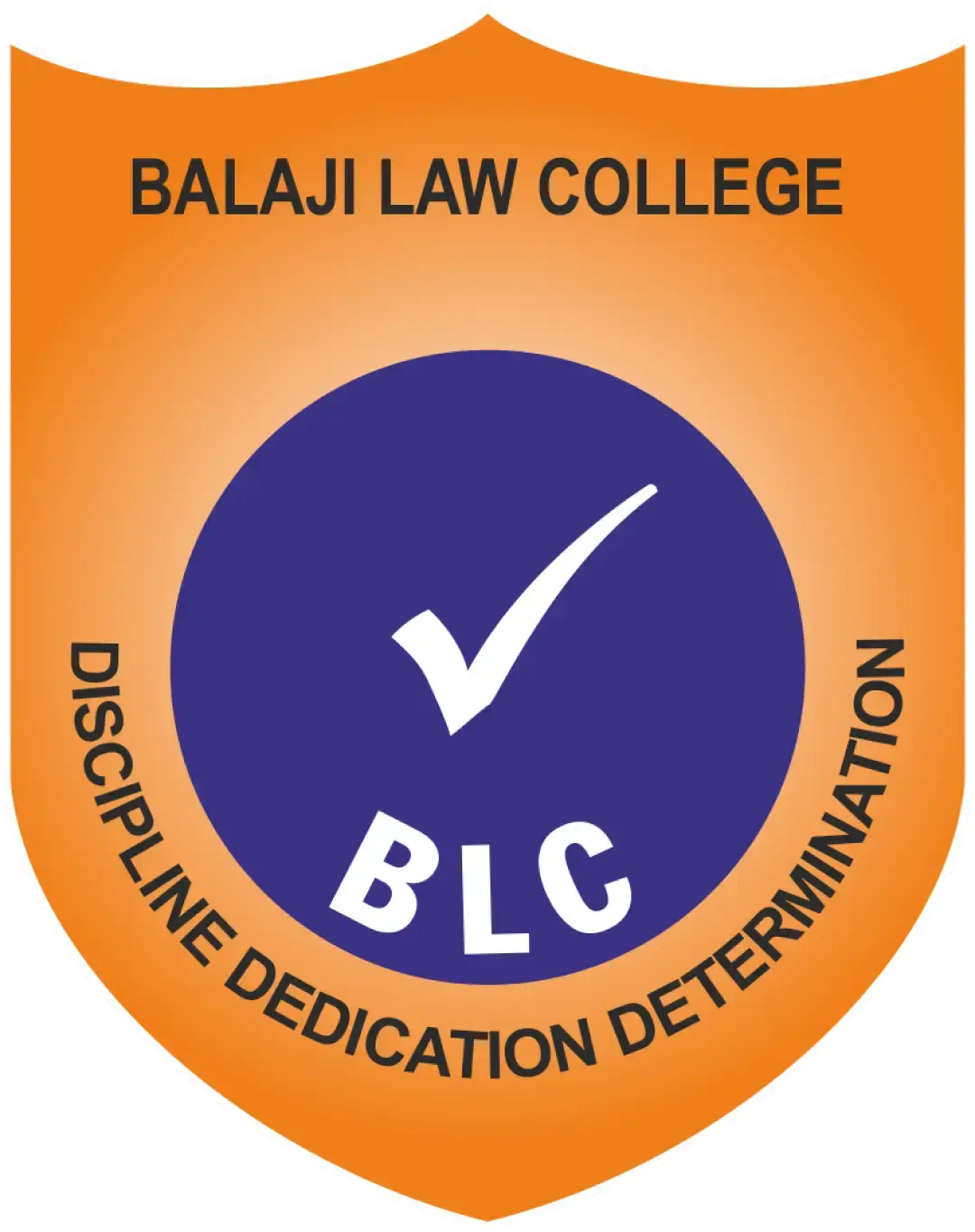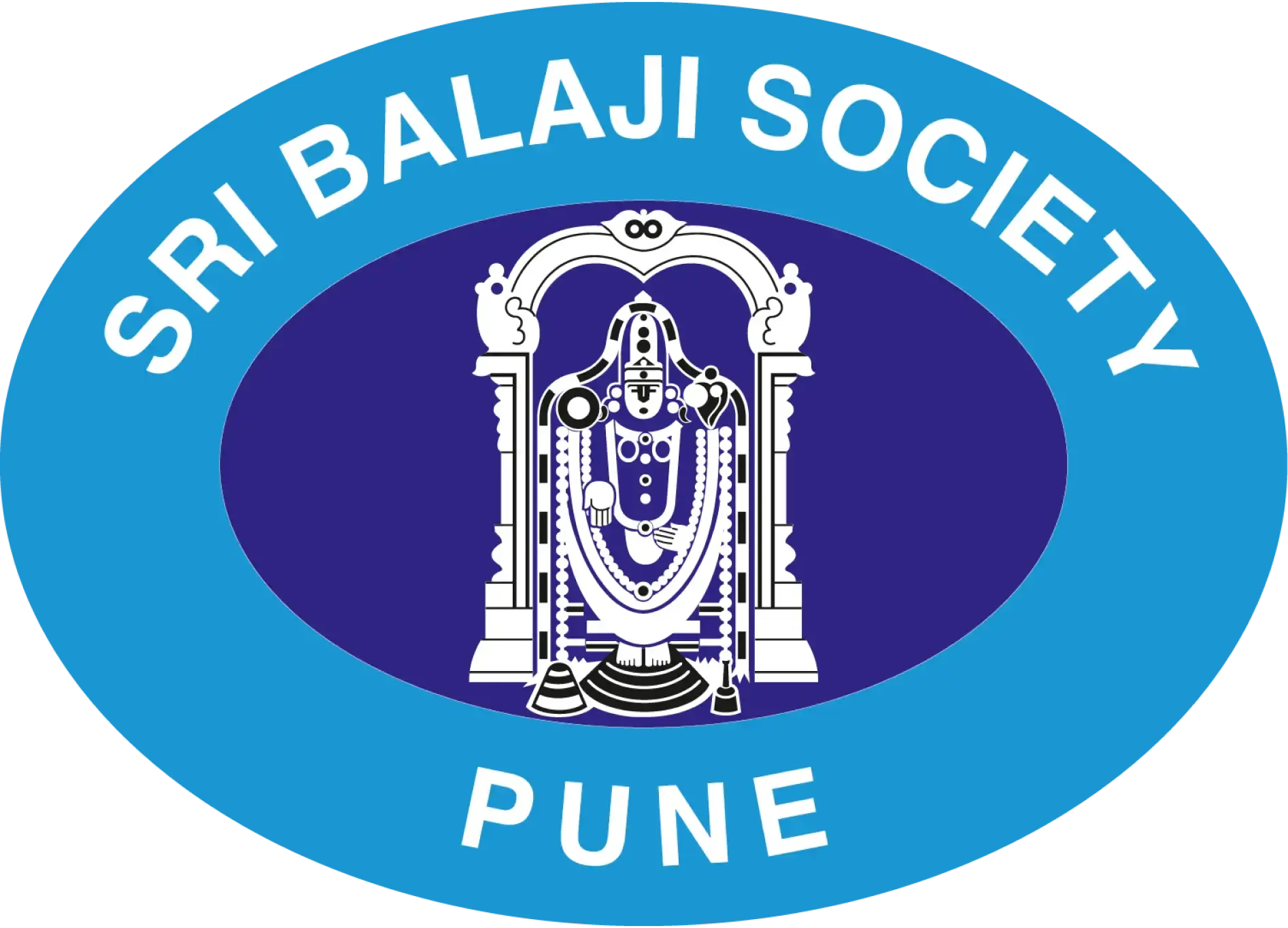The College Development Committee (CDC) is one of the most important statutory body, it acts as the apex decision-making authority for the overall growth, governance, and effective administration of the college. The CDC generally, ensuring a participatory approach in academic and administrative matters. The main role of the committee is to prepare strategic plans for academic development, infrastructure enhancement, financial planning, and student welfare activities. It works in close coordination with the principal and heads of departments to ensure smooth execution of policies and guidelines set by the affiliating university and regulatory authorities. It reviews the functioning of various cells, committees, and co-curricular activities to align them with the vision and mission of the institution. By acting as a bridge between stakeholders and management, the CDC ensures transparency, accountability, and effective governance. Ultimately, it plays a pivotal role in shaping the long-term academic excellence, inclusivity, and reputation of the college.
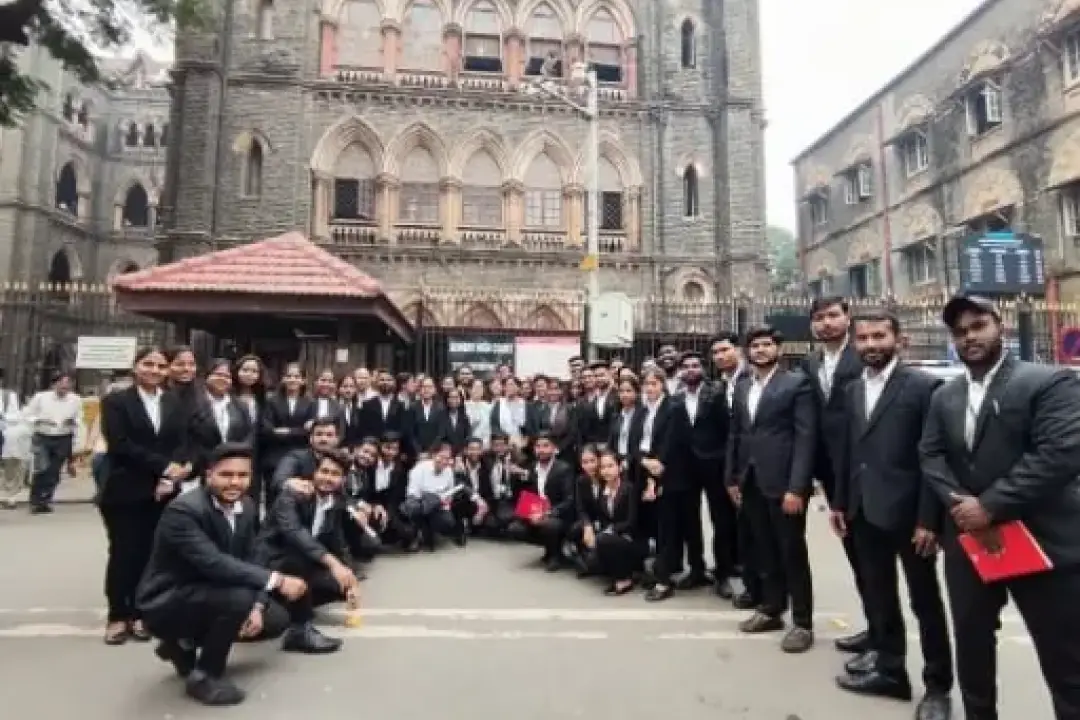
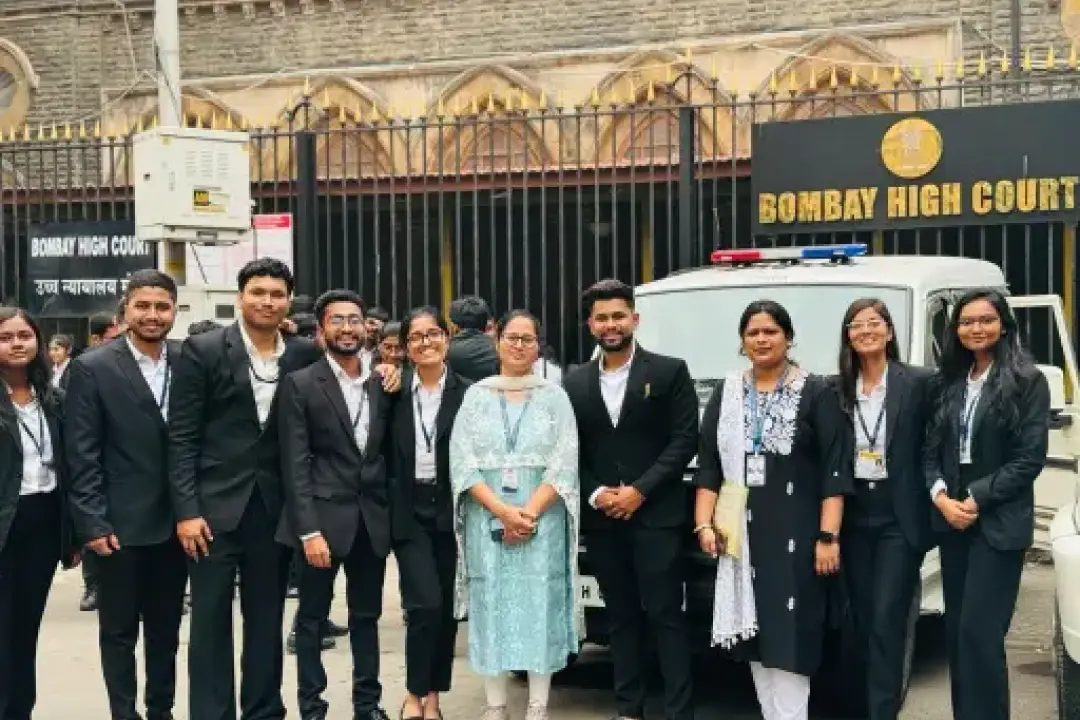
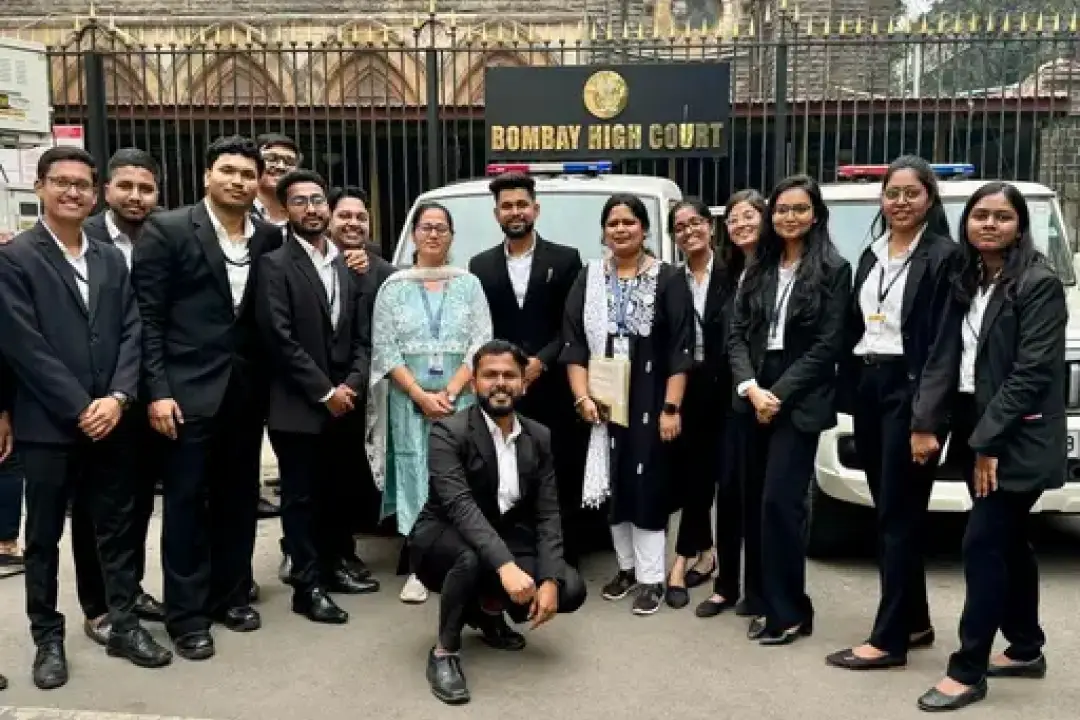
The Women Anti-Sexual Harassment & Gender Sensitization Committee also called as internal complaint Committee, is constituted to ensure a safe, respectful, and gender-sensitive environment on campus. It is established in compliance with the directives of the Supreme Court of India (Vishaka Guidelines) and the University Grants Commission (UGC) regulations, which mandate the formation of Internal Complaints Committees (ICC) in educational institutions. The committee works to prevent and address any instance of sexual harassment, gender-based discrimination, or misconduct within the campus premises. Its prime responsibility is to create awareness about gender equality, women’s rights, and respectful workplace.
The committee provides a confidential platform to address harassment or discrimination. It ensures fair and impartial inquiry, timely redressal, and justice to the aggrieved. Apart from addressing grievances, it emphasizes preventive measures through continuous sensitization programs, self-defence workshops, and awareness drives. By promoting inclusivity and equality, the committee empowers students, particularly women, to participate confidently in academic and extracurricular activities without fear of discrimination or harassment. Its larger goal is not just conflict resolution but also creating a positive, secure, and gender-just culture across the institution.
Objective of Internals Complaint Committee & Gender Sensitization Cell
- To provide a safe, secure, and dignified working and learning environment for all women, free from sexual harassment.
- To create awareness about gender sensitization and the rights against sexual harassment.
- To prevent any form of sexual harassment through proactive measures like training, workshops, and orientation programs.
- To receive and address complaints of sexual harassment in a fair, confidential, and time-bound manner.
- To ensure that victims of sexual harassment are not subjected to further discrimination, retaliation, or victimization.
- To promote and maintain a healthy environment based on mutual respect, trust, and equality.
- To recommend suitable actions, remedies, or disciplinary measures against those found guilty of misconduct.
- To implement and monitor institutional policies in compliance with the Sexual Harassment of Women at Workplace (Prevention, Prohibition and Redressal) Act, 2013.
- Function of Internal Complaints Committee & Gender Sensitization Cell
- Prevention – Organize awareness, sensitization, and training programs to prevent sexual harassment at the workplace/college.
- Complaint Redressal – Receive and inquire into complaints of sexual harassment in a fair, confidential, and timely manner.
- Recommending Action – Suggest appropriate disciplinary or corrective action to the employer/management based on findings.
- Support & Protection – Ensure protection of complainants against victimization or retaliation and provide necessary support during the process.
List of Members
Sr.No | Name | Designation |
|---|---|---|
1. | Dr.Tejaswi Avhad | ChairPerson |
2. | Dr.Shalini Pandey | Faculty Coordinator |
The Grievance Redressal Cell serves as a vital mechanism for maintaining harmony, fairness, and accountability in academic institutions. It provides students a platform to raise concerns and grievances related to academics, administration, or interpersonal issues. The cell ensures that these grievances are heard, examined, and resolved in a timely and impartial manner. It plays a crucial role in safeguarding the rights of students by addressing issues such as, classroom difficulties, administrative delays, or any kind of discriminatory practices.
The Cell functions through a structured process where grievances can be submitted by Student, a dedicated committee evaluates the matter, conducts inquiries when necessary, and recommends appropriate solutions. Confidentiality is maintained throughout to protect the complainant’s dignity and trust. By doing so, it promotes transparency, accountability, and a positive institutional culture. The Grievance Redressal Cell ultimately strengthens trust between stakeholders and the institution, ensuring that every individual feels valued, respected, and fairly treated, which enhances overall academic and administrative efficiency.
Student Grievance and Redressal Cell
S.No | Category | Name of Members | Designation |
|---|---|---|---|
1. | Head of Institution | Dr. Tejaswi Avhad | Chairperson |
2. | Cell In-charge | Dr. Simran Koul | In-charge |
3. | Faculty Nominees | Adhishree Jadhav | Member |
4. | Administrative Officer | Ms. Sylvia Mascarenhas | Co-ordinator |
5. | Student Representative | Manore Shubhangi Vishwanath, Muley Kapil Nandkishoor | Student Members |
The SC/ST, OBC & Minority Cell is established to protect the rights, dignity, and welfare of students belonging to Scheduled Castes, Scheduled Tribes, Other Backward Classes, and minority communities. It provides a support system to address academic, social, and financial challenges faced by these students. The cell also organizes awareness programs about scholarships and Government Schemes.
In addition to resolving grievances, the cell conducts counselling sessions, to enhance the confidence and academic performance of students from disadvantaged backgrounds. It also takes steps to prevent caste-based discrimination and ensures an inclusive environment where every student feels equal and respected. By promoting cultural diversity and social harmony, the cell helps students build self-esteem and leadership qualities. The committee also maintains close coordination with state and central government agencies to provide timely assistance. Ultimately, the SC/ST, OBC & Minority Cell strengthens the vision of equity and social justice, ensuring that education truly becomes a tool for empowerment and inclusive growth.
SC/ST/OBC – MINORITY CELL:
Sr. No | Name | Designation |
|---|---|---|
1. | Dr. Tejaswi Avhad | Chairperson |
2. | Asst. Prof. Adhishree Jadhav | Member |
3. | Mr. Sutar D.R | Member |
4. | Ms. Kanchan Sonawane | Member |
5. | Suhas Waghmare | Member |
The Divyang Cell is dedicated to addressing the needs and welfare of students with disabilities. Its primary aim is to create an inclusive and barrier-free learning environment where students with physical, visual, auditory, or other disabilities can participate equally in academic and co-curricular activities. The committee works to provide facilities such as accessible classrooms, scribes during examinations for differently-abled students.
By doing so, it fosters inclusivity and reduces discrimination. The Divyang Cell ensures that no student feels left behind due to physical or cognitive challenges, thereby upholding the principles of equality, dignity, and empowerment in higher education.
Divyang Cell
| Sr. No | Role | Designation / Person |
|---|---|---|
1 | Chairperson | Dr.Tejaswi Avhad |
2 | Coordinator | Asst.Prof.Ajay Patil |
3 | Members | 1.Asst.Prof.Adhishree Jadhav 2 Ms. Sylvia.Mascarenhas(Administrative Staff Representative) 3. Mr.Karan Suryanshi (Student Member) |
The Equal Opportunity Cell (EOC) is established to promote diversity, inclusivity, and equal access to academic resources for all students, regardless of caste, gender, religion, socio-economic background, or physical ability. It ensures that every student receives fair treatment and equal opportunities to grow academically, professionally, and personally. The cell is particularly focused on supporting disadvantaged groups, including women, minorities, economically weaker sections, and differently-abled students.
The EOC actively organizes awareness campaigns on issues such as gender equality, social justice, and human rights. In addition, the cell collaborates with other committees to ensure inclusivity in all campus activities. By fostering a sense of belonging, the Equal Opportunity Cell contributes to building a culture of respect and equality within the institution. Thus, it empowers students to pursue education with dignity, confidence, and fairness.
EQUAL OPPORTUNITIES CELL:
Sr.No | Name | Designation |
|---|---|---|
1 | Dr. Tejaswi Avhad | Chairperson |
2 | Asst Prof. Kalyani Kakade | Member |
3 | Asst. Prof. Adhishree Jadhav | Member |
4 | Shubhangee Manore | Member |
5 | Kapil Muley | Member |
Established in 2003, the Moot Court Cell at SBS’s Balaji Law College has been a vital part of the college’s commitment to experiential legal education. The Cell actively promotes advocacy, legal research, and courtroom skills through regular moot court activities at both intra-college and national levels.
To enrich students’ practical understanding of law, the Cell frequently organizes guest lectures and training sessions by eminent legal professionals, including judges, senior advocates, and academicians. These interactions offer valuable insights into real-world legal practice and help students refine their analytical and presentation skills.
In 2025, the college successfully conducted the 11th Late Prof. Dr. (Col.) A. Balasubramanian Moot Court Competition, led by Dr. Shalini Pandey (Convenor) and Ms. Anuja Jalan (Co-Convenor). Held in a hybrid format, the competition attracted wide participation and concluded with offline finals that recreated the traditional courtroom experience. The event was highly appreciated for its organization and the quality of advocacy displayed.
The Moot Court Cell remains dedicated to nurturing future legal professionals by continuing to provide enriching opportunities that bridge the gap between theoretical knowledge and practical application.
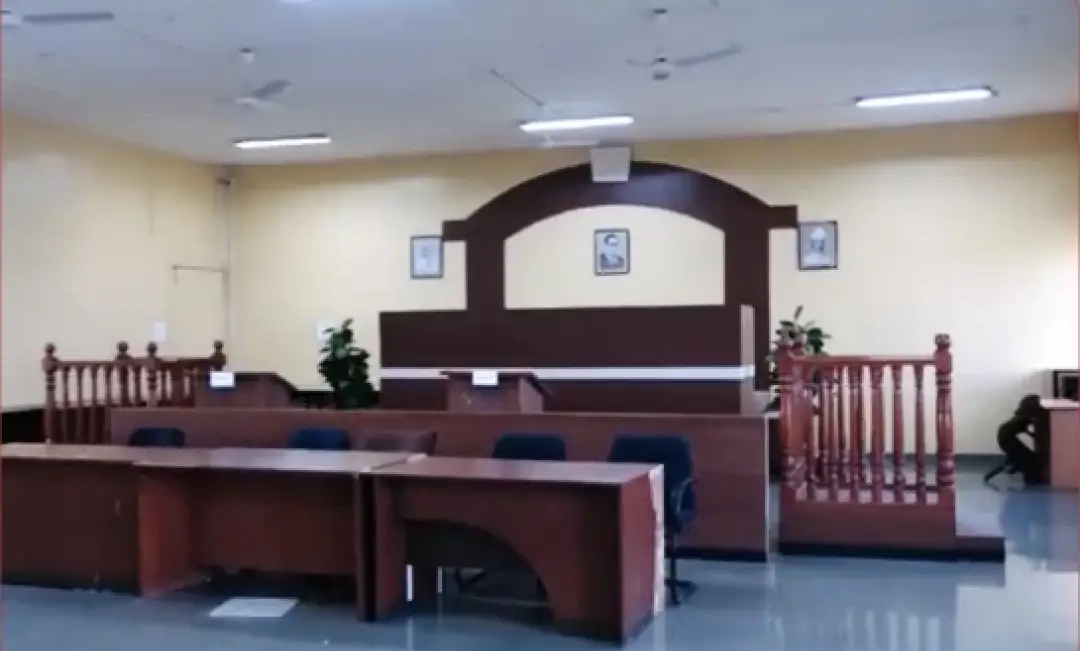
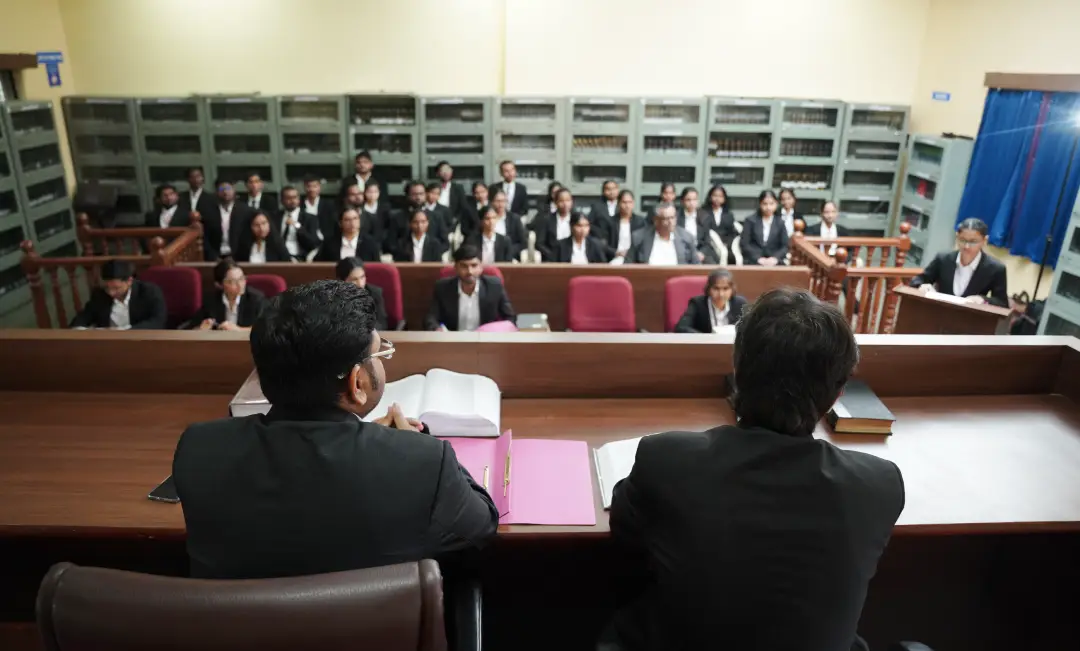
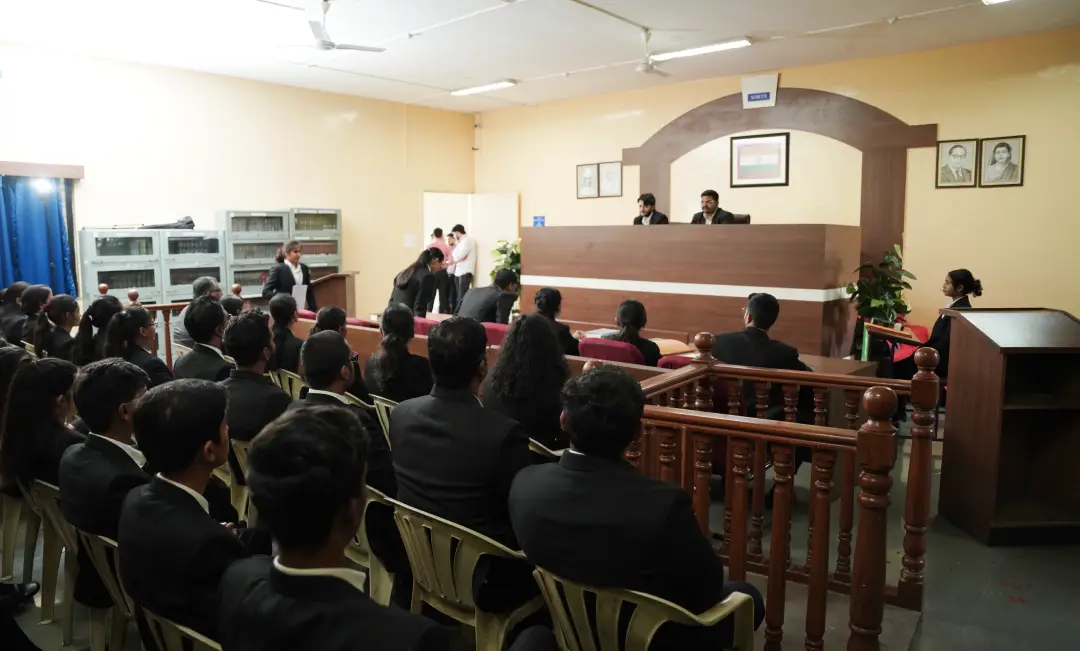
Moot Court Cell:
Faculty InCharge | Faculty Coordinator | Student Members |
|---|---|---|
Asst. Prof. Anuja Jalan | Asst. Prof. Aditi Malviya Asst Prof. Shivangi Gupta | 1. Mayank Verma 2. Sakshi More 3. Sakshi Dhawade |
The Legal Aid Cell is established to promote access to justice by providing free legal assistance to the underprivileged and spreading awareness about legal rights. It functions as a bridge between the college, the community, and the justice delivery system. The cell engages law students in practical legal work under the supervision of faculty and practicing advocates, thereby helping them apply their classroom knowledge to real-life situations. Its primary objective is to promote social responsibility among students while contributing to society.
The cell organizes legal literacy camps, awareness drives, and workshops in nearby communities, villages, and schools to educate people about their constitutional rights, government welfare schemes, and legal remedies. Students are trained to draft legal documents, assist in legal counselling, and sometimes accompany senior lawyers in pro bono cases. The cell also collaborates with District Legal Services Authorities (DLSA) and Non-Governmental Organizations (NGOs) to extend its outreach.
Apart from community service, the Legal Aid Cell also emphasizes sensitization of students towards social justice, equality, and human rights. It creates opportunities for students to understand the ground realities of marginalized groups, thus preparing them as responsible legal professionals. By combining academic learning with community engagement, the Legal Aid Cell fosters both legal competence and social commitment.
Legal-Aid Cell:
Faculty InCharge | Faculty Coordinator | Student Members |
|---|---|---|
Asst Prof Aditi Malviya | Asst. Prof. Anuja Jalan | 1. Mohak Sugnani 2. Param Saket Sarang 3. Thota Thirumalanath Nethrudu 4. Mahek Patel |
The National Service Scheme (NSS) is a flagship program under the Ministry of Youth Affairs and Sports, Government of India, aimed at developing the personality of students through community service. The NSS unit of the college engages students in various social, environmental, and developmental activities that foster a spirit of volunteerism, leadership, and civic responsibility. The motto of NSS, “Not Me, But You,” reflects its philosophy of selfless service and collective welfare.
The NSS conducts regular activities such as blood donation camps, tree plantation drives, cleanliness campaigns, health awareness programs, and community outreach initiatives. It also organizes special seven-day residential camps in villages, where students work on issues like sanitation, women empowerment, education, and sustainable development. These camps help students interact closely with rural communities and understand their challenges.
Through such activities, NSS volunteers learn teamwork, discipline, empathy, and leadership qualities. It also provides a platform for students to participate in state-level and national-level events, enhancing their exposure and confidence. The NSS unit not only contributes to nation-building but also shapes socially responsible citizens who can carry forward the values of service, equality, and inclusivity in their professional and personal lives.
The Members of NSS Cell are as follows:
Sr No | Name of the Staff | Designation | Mobile Number |
|---|---|---|---|
1 | Dr. Tejaswi R. Avhad | Chairperson (In-Charge Principal) | 9168987275 |
2 | Asst. Prof Punam Muzumdar | Academic Coordinator | 7745844654 |
3 | Asst. Prof. Dhanashri Kulkarni | Program Officer | 8669626241 |
4 | Asst. Prof. Omkar Bangar | Teaching Staff Member | 9373510328 |
5 | Mr. Nagesh Dhamale | Member (Non-Teaching) | 9527489497 |
The Student Development Cell plays a vital role in safeguarding students’ rights while promoting their overall growth and welfare. It acts as a link between the university, affiliated colleges, and students, ensuring that developmental activities are properly planned, coordinated, and implemented for the benefit of the student community.
The Cell supervises and supports development activities of students across post-graduate departments, constituent colleges, and affiliated institutions. In accordance with the objectives of the Board of Students’ Development (BSD), it promotes academic, cultural, social, and co-curricular activities that contribute to a balanced and enriching campus life. These initiatives encourage active participation, leadership skills, teamwork, and holistic learning among students.
The Student Development Cell also focuses on protecting students’ rights and creating an inclusive, supportive, and disciplined academic environment. It ensures that students are informed about various welfare schemes, scholarships, and facilities provided by the university and government, helping them overcome financial, social, and personal challenges.
It is majorly aimed at nurturing mental, physical, and cultural development, the Cell organizes workshops, training programmes, counselling sessions, sports activities, and cultural events. Through these efforts, it enhances students’ confidence, creativity, ethical values, and social responsibility, shaping responsible and capable citizens prepared to compete in a globalized world while upholding national values.
Student Development Cell
S.No | Category | Name of Members | Designation |
|---|---|---|---|
1. | Head of Institution | Dr. Tejaswi Avhad | Chairperson |
2. | Cell In-charge | Dr. Simran Koul | In-charge |
3. | Administrative Officer | Sutar D.R | Co-ordinator |
5. | Student Representative | Lonkar Sanskar Sandip, Istuti Minocha | Student Members |
The Student Council is a representative body of students that plays a vital role in bridging the gap between the administration and the student community. It provides a platform for students to voice their opinions, share concerns, and actively participate in processes related to academic and extracurricular activities. The Student Council organizes cultural events, seminars, debates, sports activities, and awareness campaigns, thereby contributing to the overall development of the student body. It also works with various cells and committees to ensure smooth execution of student-related initiatives. Moreover, the council plays a crucial role in maintaining discipline, encouraging student participation, and resolving peer-level issues.
By taking up leadership roles, council members develop important qualities such as communication skills, event management, teamwork, negotiation, and problem-solving. The council also acts as a support system during important institutional activities like orientation, annual functions, fests, and convocation ceremonies.
STUDENT COUNCIL COMMITTEE
Sr. no. | Name | Designation |
|---|---|---|
1 | Dr. Tejaswi Avhad | Chairperson |
2 | Asst. Prof. Radhika Biyani | Teaching Faculty Co-ordinator |
3 | Mrs. Sylvia Scrilo Mascarenhas | Non- Teaching Faculty Co-ordinator |
4 | Kalyani Kakade | Senior Teacher |
5 | Dhanashree Kulkarni | NSS Programme Officer |
STUDENT MEMBERS
Sr. no. | Name of Students | Designation |
|---|---|---|
1 | Shubhangee Manore | President |
2 | Kapil Muley | Secretary |
3 | Sakshi Ranawade | Lady Representative |
4 | Suhas Waghmare | Category Representative |
5 | Akshata Karunakar | Student Representative LLB-II (A) |
6 | Kiran More | Student Representative LLB-II (B) |
7 | Sushil Joshi | Student Representative LLB III |
8 | Muskan Garg | Student Representative BALLB-II (A) |
9 | Paragati Rajdev | Student Representative BALLB-II (B) |
10 | Sanika Shewale | Student Representative BALLB-III |
11 | Arya Gaikwad | Student Representative BALLB-IV |
12 | Preeti Kamate | Student Representative BALLB-V (A) |
13 | Parag Awadhiya | Student Representative BALLB-V (B) |
14 | Ranjeet Waghapur | Student Representative NSS |
15 | Bhakti Bhapkar | Student Representative SPORTS |
16 | Swarali Lembhe | Student Representative CULTURAL |
The Mental Health & Counselling Cell is dedicated to safeguarding the psychological well-being of students and staff. Recognizing that academic pressure, personal challenges, and social stressors can affect mental health, the cell provides a safe and confidential space for individuals to seek professional guidance and emotional support.
The cell regularly conducts awareness campaigns on topics such as stress management, coping skills, time management, emotional intelligence, and mindfulness. By normalizing conversations around mental health, the cell helps reduce stigma and encourages more students to seek help when needed.
Counselling services may include one-on-one sessions, group therapy, career counselling, and crisis intervention support. The ultimate aim is to promote holistic development, resilience, and overall well-being. The Mental Health & Counselling Cell thus plays a crucial role in ensuring that students lead balanced and healthy lives, both academically and personally.
The Anti-Ragging Cell is a statutory body established in compliance with the guidelines of the University Grants Commission (UGC) and the Supreme Court of India to prevent and address any incidents of ragging in educational institutions. Ragging, in any form—be it verbal, physical, or psychological—is strictly prohibited, and the cell ensures a safe and respectful environment for all students, especially newcomers.
The cell functions as both a preventive and corrective mechanism. It conducts orientation programs and awareness campaigns at the beginning of every academic year to educate students about the legal consequences of ragging, which include expulsion, suspension, and even criminal action. Posters, circulars, and seminars are used to spread awareness about maintaining dignity and harmony on campus.
The Anti-Ragging Cell also provides a confidential platform for students to report any incident of harassment or bullying. Upon receiving a complaint, the committee immediately investigates the matter and takes strict action in accordance with institutional and legal frameworks. Ultimately, the Anti-Ragging Cell plays a crucial role in ensuring that the college environment remains welcoming, inclusive, and conducive to academic as well as personal growth.
Listed below are the members of the Anti-Ragging Committee
Sr. No | Name of the member | Position | Contact details |
|---|---|---|---|
1 | Dr. Tejaswi Avhad | In-Charge Principal | Tejaswi.avhad@balajilaw.edu.in |
2 | Asst. Prof Punam Mazumdar | Faculty Member | Punam.mazumdar@balajilaw.edu.in |
3 | Asst. Prof. Shubhangee Singh | Faculty Member | Shubhangee.singh@balajilaw.edu.in |
4 | Mrs. Sylvia Mascarenhas | Administrative member | Sylvia.mascarenhas@balajilaw.edu.in |
5 | Priya Pawer | Student Member | PRIYA.LC2427182@balajilaw.edu.in |
The Green Cell is dedicated to promoting environmental consciousness and sustainable practices within the institution. Its primary objective is to encourage students and staff to adopt eco-friendly lifestyles and contribute towards environmental conservation. The cell initiates and monitors activities such as tree plantation drives, campaigns, and energy conservation workshops. It also works towards making the campus a plastic-free and pollution-free zone.
Through seminars, and awareness campaigns, the Green Cell educates the college community about pressing issues like climate change, biodiversity loss, and sustainable living. It instills in students a sense of responsibility towards nature and prepares them to be environmentally conscious citizens. By integrating ecological awareness with everyday college life, the Green Cell plays a vital role in aligning the institution with the global vision of sustainability and environmental stewardship.
The Members of Green Cell are as follows:
Sr No | Name of the Staff | Designation | Mobile Number |
|---|---|---|---|
1 | Dr. Tejaswi R. Avhad | Chairperson (In-Charge Principal) | 9168987275 |
3 | Asst. Prof. Dhanashri Kulkarni | Green Cell In-Charge | 8669626241 |
4 | Mr. Vijay Aagle | Student Member | 9665461351 |
5 | Ms. Sanika Shewale | Student Member | 9028013824 |
Established in 2023, the Intellectual Property Rights (IPR) Cell of Balaji Law College is a dedicated academic and research-oriented body committed to promoting, protecting, and managing intellectual property within the legal education ecosystem. The Cell serves as a focal point for all IP-related initiatives, fostering a culture of innovation, creativity, and respect for intellectual assets among students, faculty, legal professionals, and the wider community.
The IPR Cell aims to advance research and learning in the field of intellectual property law by organizing awareness programmes, seminars, workshops, and training sessions. Through these initiatives, the Cell seeks to enhance understanding of the importance of IP protection and the benefits of securing intellectual property rights in an increasingly knowledge-driven economy.
In pursuit of its objectives, the IPR Cell has undertaken several notable initiatives, including the launch of the BLC IP Bulletin and Summary of IP Judgements featuring student contributions. The Cell has organized online workshops on Patents & Designs in collaboration with the Rajiv Gandhi National Institute of Intellectual Property Management (RGNIIPM), DPIIT, Government of India, and on Legal Protection of Geographical Indications in India, with Prof. Adv. Ganesh Hingmire, a renowned GI expert and National IP Award recipient, as the keynote speaker. The Cell also observed World IP Day 2025 through essay writing and quiz competitions, encouraging student engagement and awareness in the field of intellectual property.
Faculty In-Charge & Co-ordinator | Student Members |
|---|---|
Asst. Prof. Shubhangee Singh |
|
| |
| |
| |
| |
| |
| |
| |
|
The Research Cell is a dedicated body that promotes and facilitates research activities among students and faculty. It recognizes that research is the backbone of academic excellence and professional growth. The cell provides a structured platform for individuals to pursue research projects, publish papers, and present findings at conferences and seminars. It encourages a culture of inquiry, critical thinking, and problem-solving within the institution.
It organizes workshops on research methodology, data analysis, plagiarism prevention, and academic writing. The cell works to ensure that all research conducted within the college adheres to ethical standards and integrity.
It encourages faculty and students to contribute articles to reputed journals and participate in research competitions. By providing resources, mentorship, and exposure, the Research Cell strengthens the institution’s knowledge base. Ultimately, it plays a key role in enhancing the academic reputation of the college, preparing students for higher studies, and nurturing innovation-driven professionals.
Objective of Research Cell
- To foster a culture of research, inquiry, and innovation among students and faculty.
- To promote quality research through guidance, training, and academic support.
- To encourage interdisciplinary studies and collaborative projects.
- To facilitate publications in reputed journals and research forums.
- To organize workshops, seminars, conferences, and guest lectures on research-related themes.
- To nurture critical thinking, analytical ability, and problem-solving skills.
- To contribute to the advancement of knowledge and institutional growth.
Function of Research Cell
- Promote Research Culture – Encourage faculty and students to undertake research activities in diverse fields.
- Guidance & Mentorship – Provide support in formulating research proposals, synopsis, and project reports.
- Funding Assistance – Facilitate access to research grants, scholarships, and financial aid from institutions and government bodies.
- Publication Support – Guide researchers in publishing papers, articles, and books in reputed journals and publishing houses.
- Organize Research Activities – Conduct workshops, seminars, conferences, FDPs, and guest lectures to strengthen research skills.
- Collaborations – Establish linkages with universities, research organizations, industries, and NGOs for joint projects.
- Plagiarism Check & Ethics – Ensure academic integrity by creating awareness about plagiarism and maintaining ethical standards in research.
- Monitoring & Evaluation – Review ongoing research projects, maintain research records, and monitor outcomes.
- Capacity Building – Train students and faculty in research methodologies, data analysis, and use of digital tools/software.
- Knowledge Dissemination – Share research findings through newsletters, reports, and institutional repositories.
List of Members and Faculty Incharges
Sr. No | Faculty Members | Designation | Students Members |
|---|---|---|---|
1. | Dr.Tejaswi Avhad | Chairperson | Varad Vijay Pathak LL.B.-III Sanika Saper BA-LL.B.-IV Akshay Zende LL.B.-III Prabhat kumar BA-LL.B.-IV |
2. | Dr.Shalini Pandey | Teaching Faculty Coordinator | Prachi Chaudhary Santosh Manavare LL.B.-III Vidhee Joil BA-LL.B.-IV |
The Extra Curricular / Cultural Cell is responsible for promoting and nurturing the artistic, creative, and cultural talents of students. Beyond academics, the cell plays a pivotal role in ensuring the holistic development of students by providing them opportunities to express themselves in music, dance, theatre, literature, fine arts, and other creative fields. It organizes various cultural programs such as annual day celebrations, traditional festivals, talent hunts, and cultural fests that allow students to showcase their abilities.
Apart from entertainment, cultural programs often include themes of social awareness, patriotism, and inclusivity, making them both educational and enjoyable. Through activities like drama, street plays, and debates, the cell also addresses social issues and promotes responsible citizenship.
Participation in cultural events helps students build confidence, teamwork, organizational skills, and leadership qualities. It also creates a sense of unity in diversity by celebrating the rich cultural heritage of India. The Extra Curricular / Cultural Cell thus plays a vital role in shaping students into well-rounded individuals by blending creativity with learning, while also enriching the cultural environment of the institution.
Sr.No | Head of the Committee | Faculty In-charge | Non-Teaching Staff | Student Members |
|---|---|---|---|---|
1 | Dr. Tejaswi Avhad | Asst. Prof. Mansi Maheshwari | Virendra Patil | Swarali Lembhe (Student Head) BALLB II |
2 |
| Asst. Prof. Ajay Patil | Sylvia Mascarenhas | Renesh Dahake BALLB II |
|
|
|
| Shrikant Nikam BALLB II |
|
|
|
| Sai Gujar BALLB II |
|
|
|
| Tanisha Badal BALLB II |
|
|
|
| Sahil Musale BALLB II |
The Students Engagement Cell is designed to enhance the active involvement of students in various academic, co-curricular, and community-oriented activities. It ensures that students do not remain passive learners but actively participate in the holistic life of the institution. The cell organizes workshops, seminars, leadership programs, volunteer activities, and interactive sessions that help students explore their potential beyond classroom learning. One of the key objectives of the cell is to instill a sense of belonging and responsibility in students towards their institution. Through its diverse range of activities, the cell creates a vibrant campus culture that emphasizes collaboration, inclusivity, and holistic growth. Ultimately, it ensures that students leave the institution not only with academic knowledge but also with life skills that prepare them for future challenges.
The Placement & Internship Cell serves as a bridge between students and the professional world. Its primary responsibility is to facilitate career opportunities for students by connecting them with reputed law firms, corporates, NGOs, government agencies, and other organizations. The cell works year-round to organize campus recruitment drives, internship programs, workshops, and career counseling sessions that prepare students for professional success.
It also conducts pre-placement training sessions such as resume writing, mock interviews, group discussions, and communication skill workshops to enhance employability. The cell maintains active collaborations with industry experts and alumni networks to create a strong placement ecosystem. Additionally, it keeps students informed about internship opportunities, ensuring that they gain practical exposure and hands-on experience during their academic journey.
Its long-term vision is to empower students to pursue diverse career paths, whether in litigation, corporate law, academia, judiciary, or social service. By ensuring that students transition smoothly from college to professional life, the cell plays a key role in shaping their career trajectory.
HEAD: DR. TEJASWI AVHAD [IN-CHARGE PRINCIPAL]
FACULTY COORDINATOR – ASST. PROF. SHUBHANGEE SINGH
SENIOR MEMBERS
Sr. No. | Name of the Candidate | Class |
|---|---|---|
1. | Mr. Pavankumar Bejgam | LL.B. II [Div. B] |
2. | Ms. Rohini More | B.A. LL.B. V |
3. | Ms. Vaibhavi Pawar | B.A. LL.B. V |
Sr. No. | Name of the Candidate | Class |
|---|---|---|
1. | Ms. Aditi Junghare | B.A. LL.B. II [Div. A] |
2. | Mr. Ganesh Bagul | B.A. LL.B. IV [Div. A] |
3. | Mr. Sarthak Desai | B.A. LL.B. IV [Div. A] |
MEMBERS
Internship and Placement Cell
Cell in Charge | Members |
|---|---|
Assistant Professor Sarbani Sarkar | Ramkrishna Kumar, LLB 3rd year And Chavan Shashikant, LLB 3rd year |
Student Engagement and Support Cell
Cell in Charge | Members |
|---|---|
Assistant Professor Sarbani Sarkar |
Snigdha Sankrit, BALLB 5th year, Head of the SESC Ayushi Sinha, BALLB 5th year, Co-head Parag Awadhiya: BALLB 5th year, Head (Technical Team of SESC)
|
The Right to Information (RTI) Cell is established to ensure transparency and accountability in the functioning of the institution. It acts as a nodal body for addressing queries filed under the RTI Act, 2005, which empowers citizens to seek information from public authorities. The cell ensures that information regarding administrative policies, academic processes, and other institutional activities is available to stakeholders in a lawful and transparent manner.
Beyond compliance, the cell proactively promotes a culture of openness and accountability within the institution. By handling queries effectively, the RTI Cell helps build trust between the institution and its stakeholders. It also ensures that the institution adheres to good governance practices by maintaining proper documentation and records.
The Alumni Association is a crucial body that fosters a lifelong bond between the institution and its former students. It serves as a platform where alumni can stay connected, share experiences, and contribute to the growth of their alma mater. Through networking events, alumni meets, and mentorship programs, the association enables current students to benefit from the guidance and expertise of successful graduates.
The association often organizes reunions, seminars, and workshops where alumni share their professional journeys, thereby inspiring students to excel in their careers. It also collaborates with the college for placement assistance, guest lectures, and resource sharing. For students, it creates valuable networking opportunities and exposure to real-world challenges. By keeping the alumni community actively engaged, the association ensures that the bond between past and present students continues to strengthen, ultimately contributing to the long-term growth and prestige of the college.
The Sports Cell is established with the objective of promoting physical fitness, team spirit, and a healthy lifestyle among students. Recognizing that sports are an integral part of holistic education, the cell ensures that students not only excel academically but also actively participate in physical activities that contribute to their overall development. It organizes inter-class competitions, across a wide range of sports, including cricket, football, volleyball, badminton, table tennis, and chess.
The cell also coordinates with universities, and government bodies to facilitate student participation in district, state, and national-level events. In addition to competitive events, the Sports Cell emphasizes the importance of fitness and recreational sports for all students.Sports also teach valuable life skills like teamwork, leadership, time management, resilience, and handling pressure—qualities that are equally important in professional and personal life.
By balancing academics, the Sports Cell creates an environment where students can develop into well-rounded individuals. Ultimately, it contributes to building not just skilled professionals but also physically fit, confident, and disciplined citizens who value health, sportsmanship, and teamwork.
